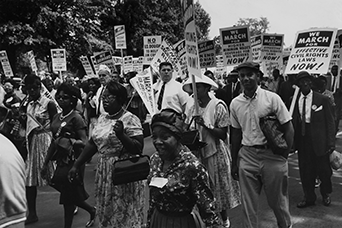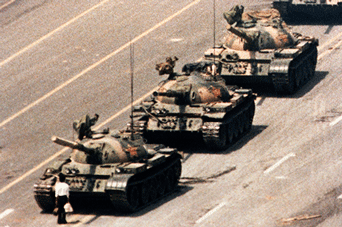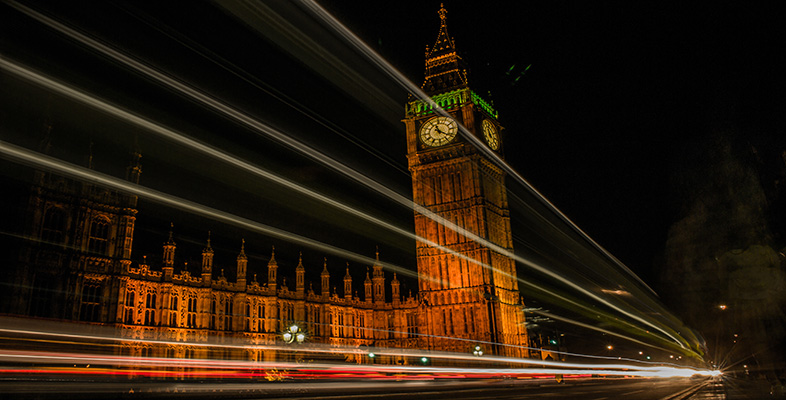1.1 The extraordinary
Most of us can probably name at least a few extraordinary global events that have taken place in the twentieth and twenty-first centuries. Even those of you fairly new to politics can probably list at least a couple of major events.
- Think about two or three events that would make your list of extraordinary global events, and some reasons why you think they are globally significant.
- Then examine the boxed list below – a compilation of some of the events we thought of. Do any of the events on your list overlap with ours?
- You might also start thinking about what might make these events ‘political’. You will explore various definitions of politics later in the course.

Box 1 Some extraordinary global events
The bombing of Hiroshima and Nagasaki
As the Second World War drew to a close, the US dropped atomic bombs over the Japanese cities of Hiroshima and Nagasaki on 6 and 9 August 1945, respectively, killing over 129,000 people. Following the war, Hiroshima was rebuilt as a memorial to peace.
The annexation of Crimea
On 18 March 2014, President Vladimir Putin signed a law to ratify Russia’s takeover of Crimea from Ukraine, Russia’s first territorial expansion since the Second World War. The act was widely condemned by world leaders, as well as by the North Atlantic Treaty Organization (NATO), as an illegal annexation of Ukrainian territory.
The African-American civil rights movement
Nonviolent protest and acts of civil disobedience were the main features of the civil rights movement in the US for over a decade, from 1955 to 1968. These campaigns created a series of crises, which led to significant dialogue between campaigners and government authorities.

The Tiananmen Square protests
Over a million students and residents occupied Beijing’s Tiananmen Square for the largest political protest in China’s history. The protesters were violently suppressed and the country’s communist leaders ordered the military to enforce martial law in the capital.
The Iraq War
The US-led 2003 invasion of Iraq removed the Saddam Hussein regime, but led to ongoing conflict against an insurgency for over ten years. Unrest and armed conflict continue to this day.
The fall of the Berlin Wall
Following weeks of civil unrest in the German Democratic Republic and the consequent relaxation of cross-border visits, East German citizens were finally allowed free access to West Germany on 9 November 1989. This led to the eventual fall of the Berlin Wall and subsequent German reunification, which was formally concluded on 3 October 1990.
September 11
On 11 September 2001, militants affiliated with al-Qaeda, the Islamic terrorist group, hijacked four passenger planes and carried out a series of suicide attacks against the US. Two planes were flown into New York’s World Trade Center, while a third was flown into the Pentagon, close to Washington, DC. Passengers and flight attendants overcame hijackers on the fourth plane, causing it to crash in a field in Pennsylvania.
What do you think of the events we came up with? The list you made might overlap to some degree with the events above. But it might not overlap completely. Some events – like the Second World War or the terrorist attacks against the US on 11 September 2001 (9/11) – altered the global political landscape to such a degree that most people, in most places, would recognise them as extraordinary political events. But there are others that you might not have recognised or thought significant because they did not affect you directly. What you included on your list probably has a lot to do with where you are studying this course, as this will influence your perception of which events were of crucial importance and which were not.

You might also have included some events that had a huge impact on your life, but didn’t make our list at all. Or perhaps they didn’t make your list either – you might have thought they were important, but not so important as to make your list. Of course, even if political events are not extraordinary global events, that doesn’t mean they are not significant political events in their own right.
